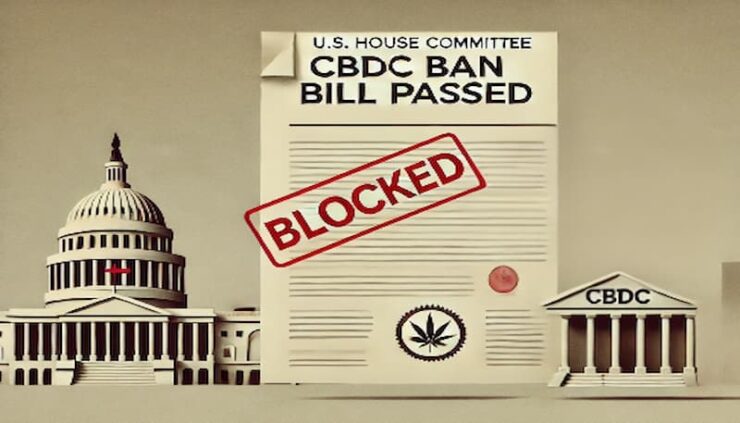The U.S. House Financial Services Committee has voted to advance the Anti-CBDC Surveillance State Act (H.R. 1919), a bill that seeks to block the Federal Reserve from issuing a central bank digital currency (CBDC) or offering digital financial services directly to individuals.
The legislation passed the committee on 3 April with a 27–22 vote, largely along party lines.
The bill was reintroduced by House Majority Whip Tom Emmer (R-Minn.), who argued that a U.S. CBDC could be used to monitor citizens’ financial activity and grant the federal government unprecedented control over personal spending.
“The Anti-CBDC Surveillance State Act ensures that the United States digital currency policy is in the hands of the American people, not the administrative state,” Emmer said during the markup session.
He described CBDCs as “government-controlled programmable money” and warned that they could be used to restrict or censor politically unpopular transactions. Emmer added the bill is meant to uphold “privacy, individual sovereignty, and free market competitiveness.”
A Revival of Earlier Efforts to Block CBDCs
This is not the first time Emmer has introduced anti-CBDC legislation. His earlier bill, H.R. 5403, passed the House Financial Services Committee and the full House in 2024 but stalled in the Senate before the 118th Congress concluded in January.
The newly reintroduced version, H.R. 1919, picks up where the previous one left off, gaining momentum as Republican lawmakers’ opposition to digital fiat currencies grows.
Not all lawmakers agree with the anti-CBDC push. Representative Maxine Waters (D-Calif.) and other Democrats have criticized the bill as short-sighted and anti-innovation, arguing that a well-designed CBDC could modernize the U.S. financial system and preserve the dollar’s global reserve currency status.
According to the Atlantic Council, 134 countries—representing 98% of global GDP—are exploring CBDCs. Of those, 66 are in advanced stages, including pilot programs and full-scale development.
The bill also aligns with President Donald Trump’s January executive order, which declared that CBDCs pose risks to financial stability, individual privacy, and U.S. sovereignty. Trump vowed to block any attempt to introduce a government-issued digital dollar.
In February, Federal Reserve Chair Jerome Powell echoed this sentiment, stating the Fed would not pursue a CBDC under his leadership. Treasury Secretary Scott Bessent also said he sees “no reason” for the U.S. to adopt a digital dollar.
On the same day, the committee also voted to proceed with the Stablecoin Transparency and Accountability for a Better Ledger Economy Act, a bill that aims to create a regulatory framework for dollar-pegged stablecoins.
This legislation seeks to boost U.S. competitiveness in the global stablecoin market while addressing risks related to reserve backing, audits, and redemption mechanisms.
Next Steps in the Legislative Battle
The passage of H.R. 1919 through the House Financial Services Committee sets up a potential floor vote in the House, though its path through the Senate remains uncertain.
As debate over digital currency intensifies, the bill highlights a widening divide in Washington between privacy-focused CBDC opponents and those who see a digital dollar as essential to future-proofing U.S. financial leadership.





